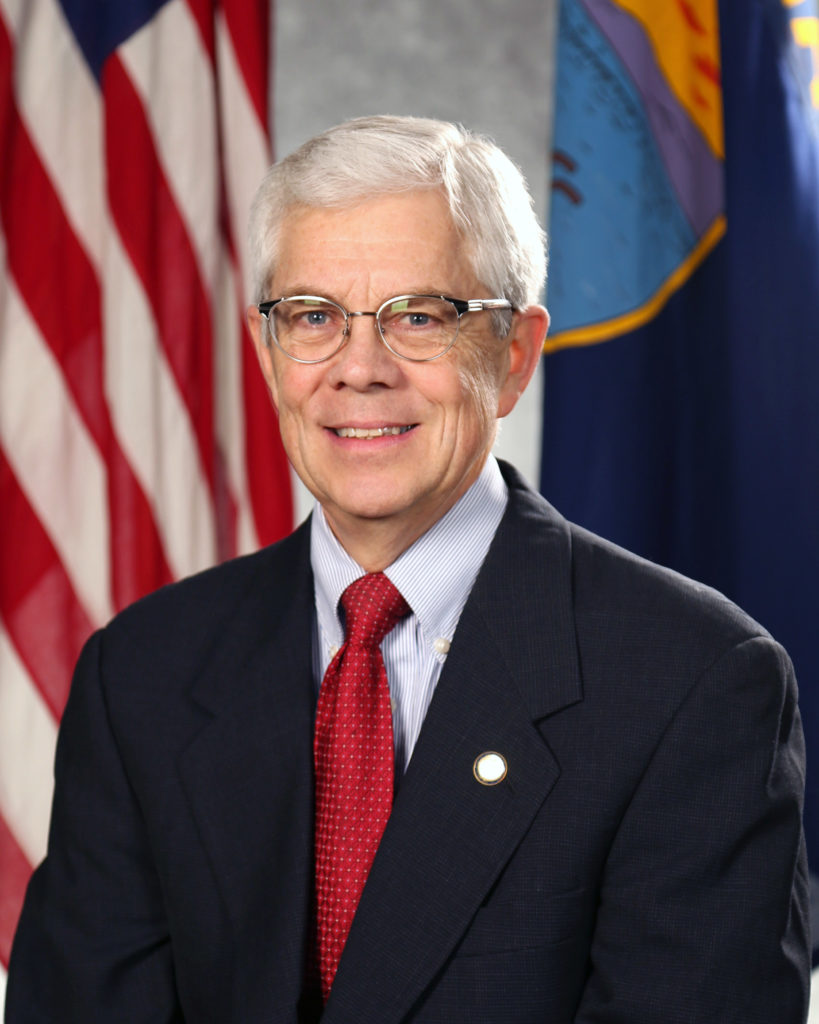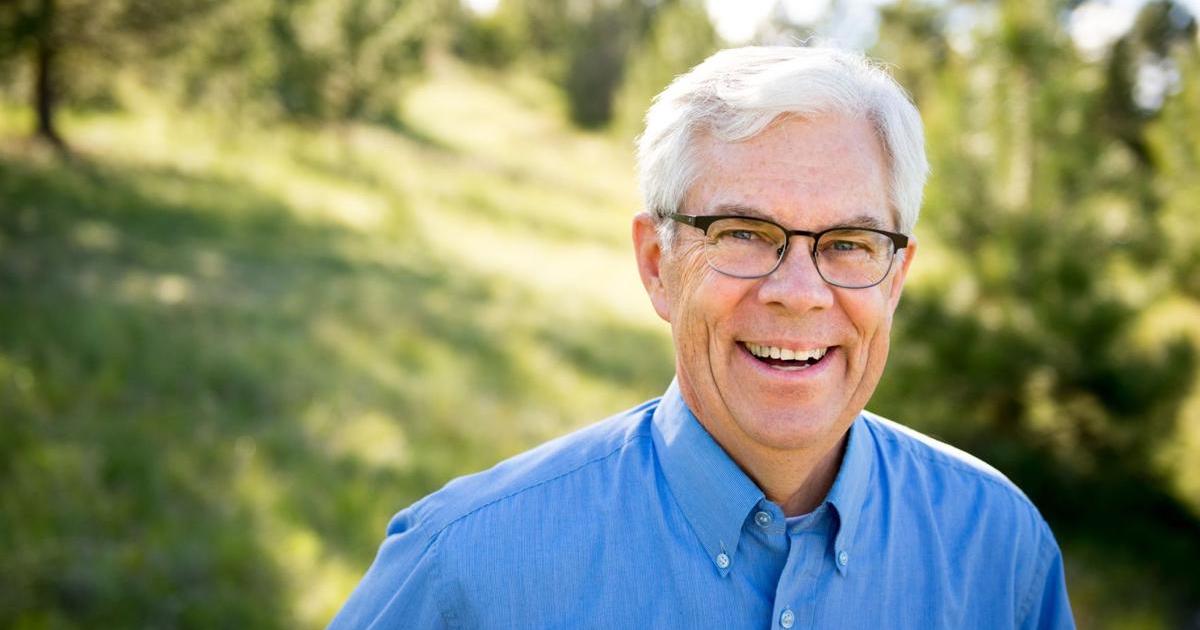Key actions and positions posted on the intersection of disability and education, jobs, immigration, climate crisis, criminal justice and more

Helena, MT, Sept. 10 – Lieutenant Governor of Montana and current Democratic candidate for Governor Mike Cooney has responded to a detailed candidate questionnaire on disability issues. The questionnaire is from RespectAbility, a nonpartisan nonprofit disability organization that does not endorse candidates. The questionnaire is purely for educational purposes. RespectAbility has reached out to key Senate and gubernatorial campaigns on both sides of the aisle and will be posting all responses on The RespectAbility Report. The full text of RespectAbility’s questions and Cooney’s responses follows:
1. Learning during the COVID-19 pandemic has led to more issues and concerns for all students and their families, but this is especially true for students with disabilities. Additionally, the gap in graduation and drop-out rates between students with and without disabilities continues to undermine their futures. For example, in the class of 2018, only 66 percent of Black students with disabilities, 71 percent of Hispanic students with disabilities, 77 percent of white students with disabilities, and 79 percent of Asian-American students with disabilities completed high school. Furthermore, just seven percent of students born with a disability graduate from college. What is your plan for ensuring that all students with disabilities receive a quality and appropriate education to acquire the critical and marketable skills necessary to compete in a job-driven economy?
Education is a great equalizer in a 21st century economy, and making education more accessible to everyone is a cornerstone of my platform. As governor, I will fight to supply students and schools with the tools they need to support remote learning, technology upgrades, and related expenses amidst the unprecedented toll the COVID-19 pandemic has caused Montana’s education system. I will also permanently provide inflationary increases in Special Education funding to ensure Montana kids with disabilities have equal access to a free quality public education.
2. In the economic expansion prior to the COVID-19 pandemic, the national employment rate for working-age people with disabilities in America was 37.6 percent compared to 77.8 percent of people without disabilities. Further, there continues to be significant disparities in employment outcomes within the disability community, which varies from state to state. There are significant racial disparities in disability employment outcomes. 38.9 percent of working-age white people with disabilities have jobs compared to only 29.7 percent of working-age Black people with disabilities had jobs, 39.4 percent of working-age Hispanics with disabilities and 43.2 percent of working-age Asian-Americans with disabilities. The pandemic has ravaged the disability community and more than 1 million workers with disabilities have lost their jobs. If elected, what will you do to ensure that the government is removing barriers and promoting high quality, inclusive services built on evidence-based policies, practices and procedures leading to competitive, meaningful careers, which includes promoting entrepreneurial opportunities?
My “Keep Montana Working” plan focuses on promoting meaningful, good-paying jobs for all Montanans, including folks with disabilities. As governor I will create the Office of Economic and Workforce Development, which will work to ensure Montana’s businesses have what they need to grow and prosper, and will have resources and guidance to help businesses ensure they afford those opportunities to everyone, especially Montanans with disabilities.
3. The disability community fundamentally believes in the need to ensure “Nothing about us, without us” – real inclusion and places at decision making tables – because we know solutions that work and want to be a part of making our communities stronger. What specific measures have you taken to make your campaign accessible for, and inclusive of, people with disabilities, as every issue impacts our lives?
My campaign is dedicated to ensuring all our campaign materials, including online videos, are properly captioned and accessible for people with disabilities.
4. RespectAbility published Disability in Philanthropy & Nonprofits, based on our study on the levels of disability inclusion in the social sector across the country. This largescale study found significant data showing that nationwide, organizations overall want to be inclusive, but are unintentionally excluding the one-in-five people with disabilities. What will you do to promote policies and practices designed to support full community engagement, access and inclusion of people with disabilities?
When I am elected, I will establish a Disability Rights Council that will meet periodically and provide me with recommendations and feedback on policy and programs designed to meet the needs of Montanans with disabilities. This group will consist of stakeholders, agency representatives, and leaders in the disability community from across the state, and will be charged with finding ways I can, as governor, enact changes that make meaningful improvements in the lives of disabled Montanans.
5. Elected officials have multiple opportunities to demonstrate a strong commitment to diversity and inclusion, full community participation and celebrating the contributions and accomplishments of people with disabilities through press releases, speeches, celebratory events including National Disability Employment Awareness Month. There are significant stigmas that create attitudinal barriers that limit options and perpetuates low expectations for people with disabilities. What measures will you take to combat these stigmas and promote opportunities for people with disabilities?
As governor, I am committed to raising the visibility of folks with disabilities, and I will seek every opportunity to promote opportunities for disabled Montanans. As one of Montana’s most visible politicians, the governor sets the tone for how we treat and respect others, and I will lead by example when it comes to fighting stigmas and changing attitudes.
6. In our nation’s public schools, there are 6.3 million students with disabilities. The changing demographics of America are reflected in these students, with 11.4 percent of students with disabilities nationwide, almost 720,000, also identified as English-language learners. Their accommodation needs are compounded by the fact that many come from households that do not speak English at home, adding an extra challenge for parental interaction. It can also be harder to diagnose disabilities in children when they are English language learners. Additionally, immigration issues and fears over the public charge rule impact students with disabilities, their families and the wider workforce. What policies would you advance to enable students and their families who are English language learners with disabilities to succeed in school and employment?
When I am elected I will fight to make sure all of our schools have the resources they need to ensure every student gets the education they deserve. I will push back against harmful budget cuts, and I will work to expand programs that give students who need it support so they can grow and thrive.
7. Housing, criminal justice, climate issues, transportation and every other area have significant impacts on people with disabilities. What additional policies and priorities, other than those already discussed above, do you plan to focus on to improve the lives of people with disabilities?
As governor, I will work closely with the disability rights community to continually take stock of ways my administration can improve the lives of folks living with disabilities, and will engage in thoughtful discussions to ensure their needs are met. I look forward to working with your organization and many others to reach these goals and create a better, more inclusive Montana for everyone.
Lieutenant Governor Cooney is facing off against Republican Congressman Greg Gianforte in this year’s closely watched election. RespectAbility has contacted the Gianforte campaign about completing our non-partisan questionnaire multiple times via email and we are currently waiting to receive their response.
RespectAbility is a nonprofit, nonpartisan organization that fights stigmas and advances opportunities so people with disabilities can fully participate in all aspects of their communities. RespectAbility does not rate or endorse candidates. View more coverage of 2020 candidates.

[…] Read Response in Full […]